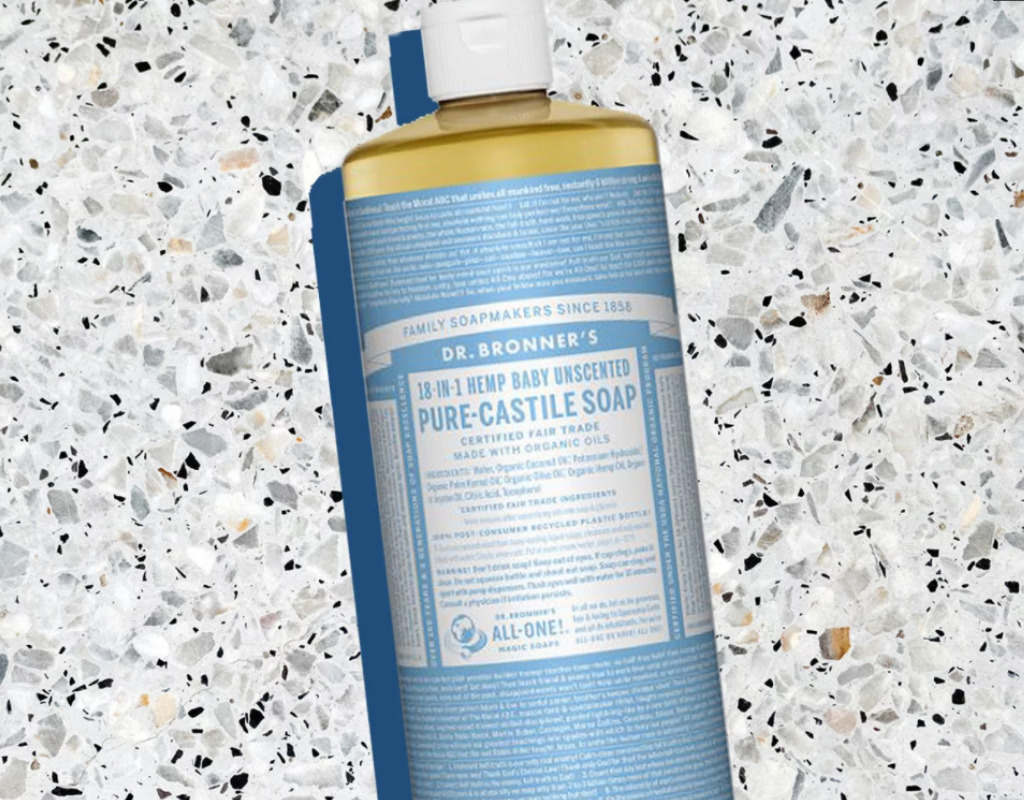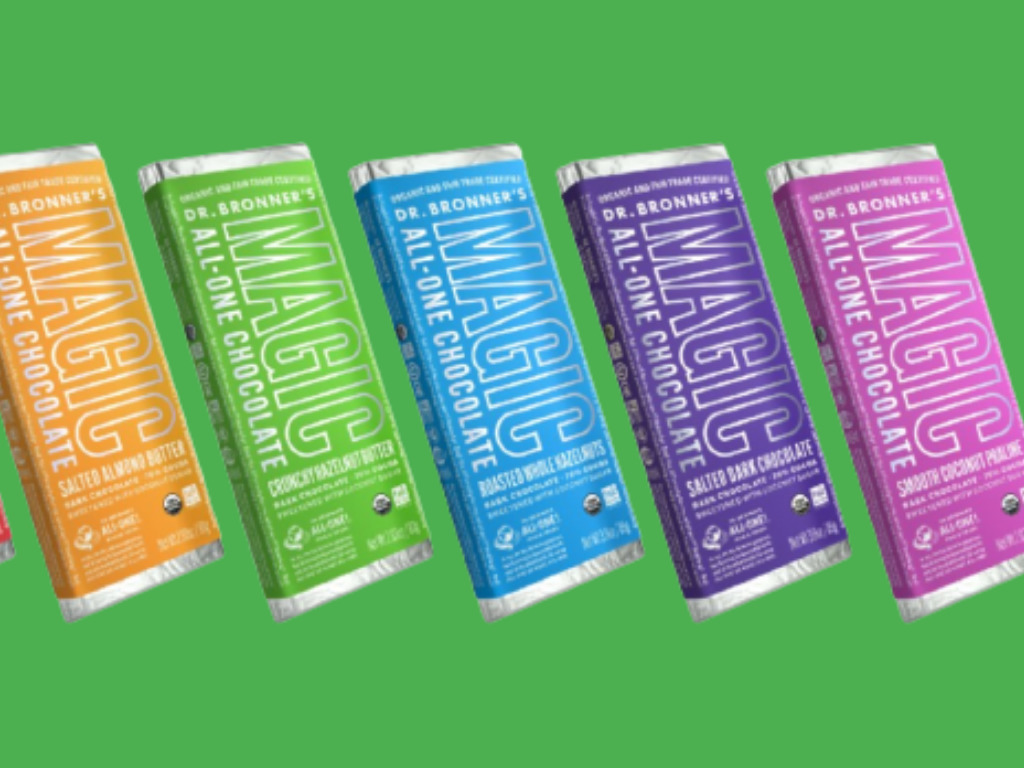4 Mins Read
Natural soap pioneer Dr. Bronner’s is set to launch Magic Chocolate, a new range of organic, fair trade and vegan chocolate made using dynamic agroforestry, a type of sustainable farming practice, and the company says the bars will be available across the United States starting from the summer.
California-based Dr. Bronner’, a family-owned maker of one of the top-selling natural brands of soap in North America, is set to make its first foray into the vegan chocolate category.
The company claims the Magic Chocolate bars are produced ethically, with a socially and environmentally responsible supply chain developed with the guidance of Swiss chocolatiers and industry experts. It is a direct product of Dr. Bronner’s work with farmers in eastern Ghana that are focusing on improving the health and productivity of existing palm and cocoa trees in the region through a farming practice called dynamic agroforestry.
Dynamic agroforestry means integrating complementary trees and other crops that promote biodiversity, enhances yields as well as generate income streams, without the need for any toxic chemicals as the plant species naturally help each other in a healthy tropical ecosystem.
Using cocoa from this method and other regenerative organic practices, the products are made up of 70% dark chocolate and sweetened with a low glycemic index coconut sugar.
Available in six flavours including Roasted Whole Hazelnuts, Crunchy Hazelnut Butter, Salted Whole Almonds, Salted Almond Butter, Smooth Coconut Praline, and Salted Dark Chocolates, the bars features a blend of Ghanaian and Ivory Coast cocoa, Indonesian coconut sugar, Congolese cocoa butter, and vanilla from Madagascar and for a single, 3oz (estimated) bar, the chocolates are priced at US$5.49.
In a press release seen by Green Queen, Cosmic Engagement Officer of Dr. Bronner’s, David Bronner said that the company is using regenerative organic agriculture and its many benefits to not only bring good chocolates to consumers but also support better livelihoods for farmers and boost soil fertility. “When we learned that many of the 800 farmers who supply our Regenerative Organic Certified Serendipalm project in Ghana also grew cocoa, it was a perfect opportunity to grow our partnership with fair trade farmers by developing these cocoa beans and other ingredients—all sourced to the highest standards possible—into a rich, delicious dark chocolate that elevates soil and community health, as well as quality of life for everyone in the supply chain.”

Read: Your Favourite Chocolate Bar Is Fuelling Deforestation In Indonesia Despite “Sustainability Facade”
The traditional chocolate trade is known to cause severe social and environmental damage as the sector has been built on disastrous industrial farming practices that not only cause severe damage to the planet but also result in low cocoa yields, fewer wages for farmers, and exploitation of labour.
When we learned that many of the 800 farmers who supply our Regenerative Organic Certified Serendipalm project in Ghana also grew cocoa, it was a perfect opportunity to grow our partnership with fair trade farmers by developing these cocoa beans and other ingredients
David Bronner, cosmic engagement officer of Dr. Bronner’s
Dr. Bronner’s is looking to reduce ecological and social harm by making their production processes as sustainable as possible, and the range has secured both USDA Organic and Non-GMO Verified certification.
Vice President of Special Operations and author of the newly released opus on Dr. Bronner’s ethical supply chain Gero Leson added: “The true cost of chocolate production has been externalised and paid by cocoa-producing communities in the service of profit for a few at the expense of many—leading to wide-spread ecological destruction, climate instability, poverty, worker exploitation, child labor, and even slavery. We want to model a move away from extractive capitalism to a truly constructive model. This thinking is at the foundation of Dr. Bronner’s decision to bring our magic chocolate to market.”
Read: The Truth About Your Fairtrade Chocolate Bar: Q&A w/ Fairafric Founder Hendrik Reimers
In addition to this, Dr. Bronner’s has developed a more responsible outer packaging for its chocolate bars, made from 100% recycled paper with a minimum of 80% post-consumer recycled fiber.
Known for its plant-based soaps, the company donates a large portion of its profits to charities like Mercy for Animals, Sea Shepherd, and Animal Outlook. Last year, it sold one bottle of soap every 1.51 seconds thus generating generated US$190 million in revenue and donated 40% of its profits to charities.
Vegan chocolates are slowly gaining momentum around the world with several brands working to provide consumers with ethically made chocolates. Colorado-based Trupo Treats recently launched vegan milk chocolate alternatives to iconic cholate bars like Kit-Kat’s, Twix, Nestle Crunch and Hershey’s. Chocolate behemoth Hershey too has jumped on the bandwagon and will soon unveil plant-based sugar chocolates that it claims will have lower calories than its traditional counterpart and competitor company Nestlé has too announced that it will be offering egan versions of its KitKat chocolate.
Lead image courtesy of Dr. Bronner’s.




